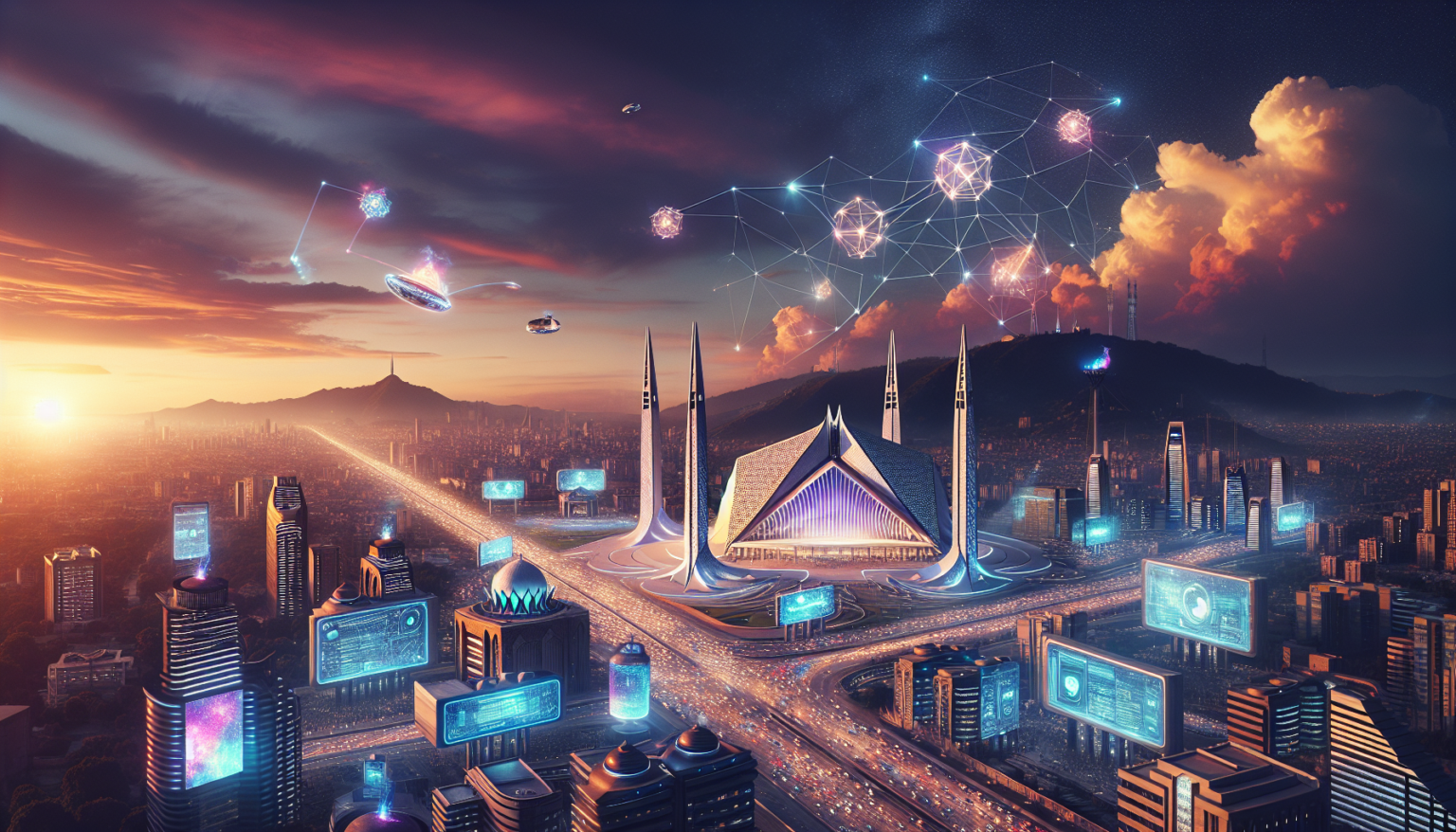
In today’s digital age, you’re witnessing a rapid transformation of media landscapes worldwide, and Pakistan is no exception. The digital media scene in Pakistan is evolving at an unprecedented pace, reshaping how information is created, shared, and consumed. This shift is having a profound impact on various sectors, from journalism and advertising to e-commerce and cybersecurity, opening up new possibilities for both businesses and consumers.
As you explore the future of digital media in Pakistan, you’ll discover a world of opportunities and challenges. The rise of digital marketing and online advertising is changing how brands connect with their audiences. Social media trends are influencing public opinion and consumer behavior like never before. Digital journalism is redefining news delivery, while the growing concern for cybersecurity highlights the need to protect digital assets. To understand these developments, we’ll delve into key areas such as digital innovation in content creation, the growth of e-commerce, and the evolving role of digital media professionals in this dynamic landscape.
1. Digital Innovation in Content Creation
As you explore the future landscape of digital media in Pakistan, you’ll notice a significant shift in content creation. The digital realm is transforming how stories are told and information is shared. This evolution has a profound impact on various sectors, including journalism, marketing, and entertainment.
Interactive and multimedia storytelling
In Pakistan, the emphasis is shifting towards compelling storytelling that resonates emotionally with audiences. Brands are focusing on creating narratives that are culturally relevant and locally inspired. This approach has proven to be particularly effective in building strong brand identities and fostering customer loyalty. The rise of interactive and multimedia storytelling has opened up new possibilities for engaging audiences.
Augmented Reality (AR) and Virtual Reality (VR) technologies are gaining momentum in Pakistan’s digital marketing space. These immersive technologies offer unique experiences, allowing consumers to visualize products in real-world settings before making a purchase. From virtual try-ons in fashion to AR-driven home decor previews, brands are exploring innovative ways to engage their audience.
Data journalism and visualization
Data journalism has become an essential tool for digital media professionals in Pakistan. By leveraging data visualization techniques, journalists can present complex information in a more digestible and engaging format. Tools like Tableau Public and Google Fusion Tables have made it easier for content creators to produce interactive maps, charts, and graphs.
AI-powered content generation
Artificial Intelligence (AI) has revolutionized content creation in Pakistan’s digital media landscape. AI-powered tools are being used to generate high-quality content at an unprecedented speed, surpassing what is humanly possible. These tools analyze large amounts of data to offer valuable insights into customer preferences, engagement patterns, and trending topics.
However, it’s important to note that while AI-generated content is efficient, it often lacks the creative spark of human-generated content. Content creators in Pakistan are learning to use AI as a tool to enhance their creativity, rather than relying on it entirely. By combining AI-generated content with human creativity and cultural sensitivity, digital media professionals in Pakistan are creating truly engaging and impactful content that resonates with their target audience.
2. The Growth of E-commerce and Digital Advertising
Rise of online marketplaces
The e-commerce landscape in Pakistan has witnessed remarkable growth in recent years. From 2018 to 2023, projected sales surged from USD 1.2 billion to USD 2.1 billion, with the number of registered e-commerce merchants rising from 571 to 1,516. This trend suggests that an increasing number of advertisers are directing their investments towards digital channels, potentially in response to the expanding online presence of their audiences.
As Pakistan’s digital media scene evolves, online marketplaces have become a significant driver of e-commerce growth. Platforms like OLX, Daraz, and PakWheels have gained popularity, offering a wide range of products and services to consumers across the country. These marketplaces have revolutionized how Pakistanis shop, providing convenience and access to a broader selection of goods.
Shift in advertising spend
The digital advertising market in Pakistan has experienced a notable shift in recent years. Ad spending in the Digital Advertising market is projected to reach USPKR 56288.11m in 2024, with the largest segment being Search Advertising at USPKR 26777.30m. This trend indicates a growing recognition among businesses of the importance of digital channels in reaching and engaging their target audiences.
Personalized marketing strategies
As digital media in Pakistan continues to evolve, personalized marketing strategies have become increasingly important. Businesses are leveraging data analytics and AI-powered tools to deliver tailored experiences to their customers. This approach has proven effective in enhancing customer engagement and driving conversions.
Personalization allows businesses to forge deeper connections with their audience through targeted communications, product recommendations, and promotions. By analyzing customer data and behavior, companies can create more relevant and impactful marketing campaigns, ultimately leading to higher conversion rates and increased customer loyalty.
The growth of e-commerce and digital advertising in Pakistan presents both opportunities and challenges for businesses. As the digital landscape continues to evolve, companies must adapt their strategies to remain competitive and meet the changing needs of consumers in this dynamic market.
3. Challenges and Opportunities for Digital Media Professionals
As digital media in Pakistan continues to evolve, professionals in this field face both exciting opportunities and unique challenges. The rapidly changing landscape demands adaptability and continuous learning to stay relevant and successful.
Skill development needs
To thrive in the digital media industry, professionals must constantly update their skills. The field requires a diverse skill set, ranging from content creation and editing to analytics and digital marketing. Investing in education, whether through formal courses or self-directed learning, has become essential. Many organizations now offer online courses and workshops to help professionals stay current with industry trends and technologies.
New career paths
The growth of digital media has opened up a variety of new career paths in Pakistan. From digital marketing executives and social media managers to content strategists and user experience designers, the opportunities are diverse. The rise of e-commerce and digital advertising has created a high demand for professionals with relevant skills and training. Additionally, the field offers flexibility, with many professionals opting for freelance work or starting their own digital marketing agencies.
Adapting to rapidly changing technologies
One of the biggest challenges for digital media professionals is keeping pace with technological advancements. New tools and platforms emerge regularly, requiring constant adaptation. For instance, the integration of artificial intelligence in content creation and data analysis has revolutionized how professionals approach their work. Staying updated with these changes is crucial for maintaining a competitive edge in the industry.
The digital media landscape in Pakistan presents a dynamic environment for professionals. While the challenges of continuous learning and adaptation are significant, the opportunities for growth and innovation are equally substantial. As the industry continues to expand, those who embrace change and invest in their skills will find themselves well-positioned for success in this exciting field.
4. Conclusion
The digital media landscape in Pakistan is undergoing a major shift, with exciting developments in content creation, e-commerce, and advertising. This change has a significant impact on how information is shared and consumed, opening up new possibilities for businesses and consumers alike. The growth of online marketplaces and the rise of personalized marketing strategies are reshaping the way companies connect with their target audiences, leading to more effective and engaging campaigns.
For digital media professionals in Pakistan, this evolving scene presents both challenges and opportunities. The need to keep up with rapidly changing technologies and develop new skills is crucial to stay competitive in the field. However, those who embrace these changes and invest in their abilities will find themselves well-positioned to thrive in this dynamic environment. As the industry continues to expand, it offers a wide range of career paths and the potential for innovation, making it an exciting time to be part of Pakistan’s digital media landscape.
FAQs
In the upcoming years, the digital media sector in Pakistan is poised for significant expansion. By the year 2024, it’s anticipated that the revenue in this market could soar to approximately 192,266.58 million PKR
Digital media is on a trajectory of continuous evolution, propelled by the advent of new technologies, shifting consumer demands, and improvements in technology accessibility and quality. Innovations like mobile video, virtual reality (VR), augmented reality (AR), and advanced data analytics are set to shape the future landscape of digital media.
Digital marketing in Pakistan is witnessing a rapid growth trajectory. With the country’s large population, increasing internet access, and a growing number of online consumers, businesses are increasingly leveraging digital marketing strategies to effectively connect with their audiences.
Looking ahead to 2024 and beyond, digital marketing is expected to become even more integral to business strategies. Key trends include a focus on personalized content, influencer marketing, social commerce, voice search, video marketing, and the integration of artificial intelligence (AI) to drive business growth.

